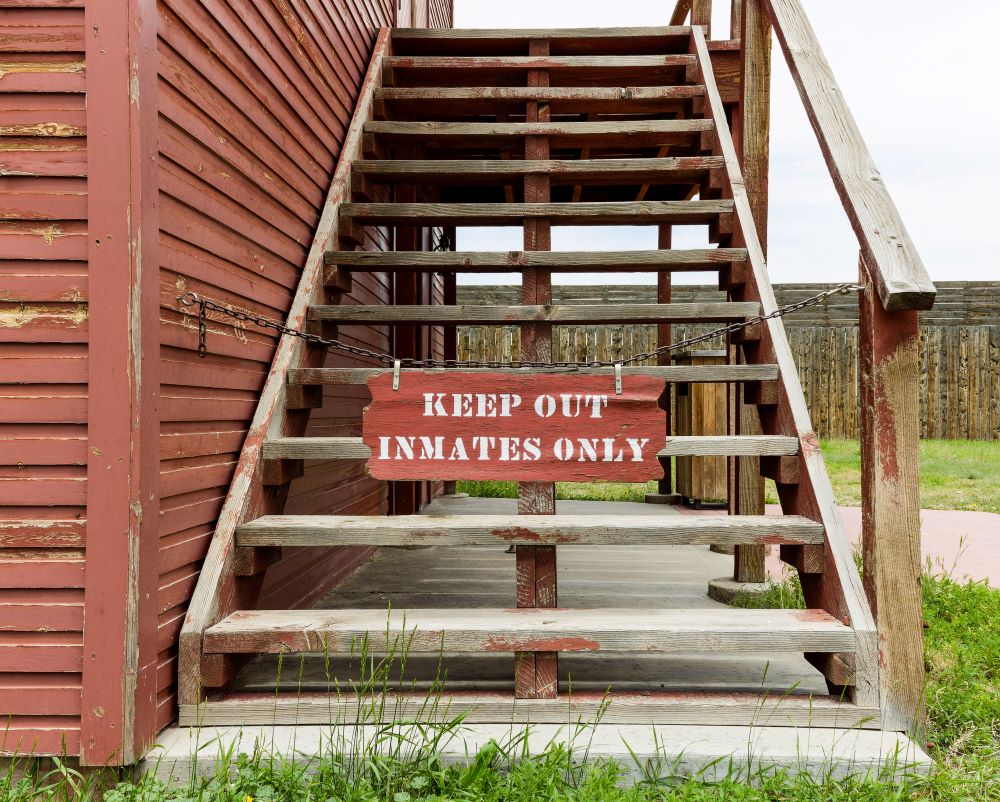Inmates who are not well enough to stand trial are also not getting the treatment they need.
In Missouri, 253 individuals have been found unfit to stand trial due to a wide range of mental health issues but remain stuck in jails without access to psychiatric treatment due to a severe shortage of beds and staff. This crisis not only deprives these individuals of the care they desperately need but also hinders the progress of their legal cases. The problem of mentally ill inmates languishing in Missouri’s jails is reaching alarming proportions. The Missouri Department of Mental Health (DMH) is currently awaiting 57 more court orders for people deemed incompetent to stand trial. Half of the 267 unfinished pre-trial competency evaluations that the court ordered will likely be sent to DMH for competency restoration. This growing problem has left countless people in legal limbo, unable to proceed with their cases until they receive the necessary mental health treatment.
Many of these individuals face agonizingly long waits, sometimes more than a year, to be transferred to a facility. During this time, their psychological well-being deteriorates significantly. In recent months, inmates found unfit to stand trial had to endure an average wait time of 11 months before being transferred to a mental health treatment center. This timeline has only slightly improved to eight months as of September.
This situation has led to a troubling shift in how Missouri handles individuals with mental illness. Instead of prioritizing psychiatric hospitals for treatment, the state has effectively transformed its prisons into de facto mental health facilities, with dire consequences for the well-being of those in custody.

The crisis can be traced back to several root causes. Over the past two decades, Missouri has significantly reduced the number of state-operated beds in psychiatric hospitals due to workforce issues, bed shortages, and insufficient funding. In 2005, the state-operated 1,540 beds across 11 facilities, a number that has since shrunk to 1,294 beds in eight facilities. While not all of these beds were allocated for individuals in law enforcement custody, the reduction in capacity has exacerbated the shortage of beds available for competency restoration.
Recognizing the urgency of the situation, Missouri lawmakers recently approved funding for a new $300 million psychiatric hospital in downtown Kansas City. However, this facility is still years away from becoming operational. It is expected to include 100 beds dedicated to individuals deemed incompetent to stand trial, which is a step in the right direction.
Additionally, a pilot program has been initiated in several Missouri counties, including Jackson, Clay, St. Louis, St. Louis County, and Greene County. DMH sends a team of healthcare providers to offer competency restoration treatment directly in jail facilities. While this program shows promise, it remains to be seen if it can alleviate the crisis comprehensively.
The plight of hundreds of Missourians trapped in jail without access to mental health treatment is a grave and deeply troubling issue. It is a crisis rooted in the shortage of psychiatric hospital beds, a situation exacerbated by workforce woes and budget constraints. Prolonged incarceration in jails not only worsens the mental health of these individuals but also fails to address the underlying issues that led to their legal troubles in the first place.
While Missouri is taking steps to address this crisis through new funding and pilot programs for mentally ill inmates, the long-term solution likely lies in bolstering the state’s infrastructure and investing in community-based programs to prevent mentally ill inmates from entering the criminal justice system in the first place. Only through comprehensive reform and a commitment to mental health care can this ongoing tragedy be prevented and help individuals get the treatment they desperately need. As advocates, lawmakers, and communities come together, there is hope that Missouri can emerge from this crisis with a more compassionate and effective approach.
Sources:
Why are hundreds of Missourians stuck in jail, not treated for mental health issues?
Amid shortage of psychiatric beds, mentally ill face long waits for treatment


Join the conversation!